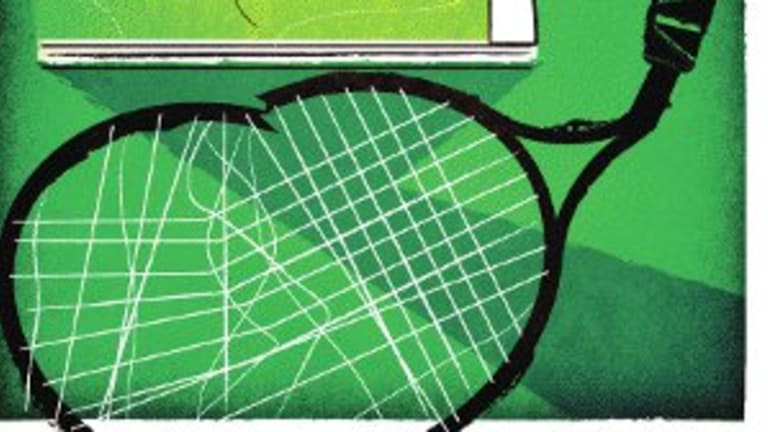Making more unforced errors than usual? Change your mental approach and you may still win.
We’ve all had those awful days when we just can’t seem to control the tennis ball. I am not referring to those days when you are playing slightly below par. In those cases, you hold yourself together, make small technical adjustments, and you can play yourself good as the match goes on. No, I mean those times when there is no shot that’s secure, and your nervous system seems to be completely out of sync. You try to relax and play normally, but it doesn’t work, and the appalling errors continue. What can you do about it?
Your first move should be to keep a tight leash on your emotional system. You will be sorely tested. Each shocking error will naturally evoke powerful feelings of frustration and anger. It’s one thing to miss your normal mix of shots, but it’s quite another when you miss an extraordinary number of easy ones by wide margins. It’s going to require some effort of will to resist the demands of your emotional system to chuck your racquet over the fence. But resist you must.
The first step toward salvation is to accept the fact that this is one of those days. It doesn’t mean there isn’t anything you can do about it, but it does mean that you can’t just expect your game to revert to normal. It probably won’t. You can, however, drive your error rate down and remain functional with concentration, emotional discipline and a modified game plan.
Your game plan will need to become more mechanical and conservative than usual. Resist any urge to get creative or tricky with your shot selection. This will lead to errors. Instead, hit more crosscourt shots and attempt fewer down-the-line winners. Take a little off your first serve and put a higher percentage of serves in play. Incorporate more margin into all your shots by staying farther away from the net and lines than normal. Be prepared to win more by attrition than by great shots. Assume you will have to do more running than usual and that points will last longer. You must be determined to work harder, both mentally and physically, to grind your opponent down. If you are going to try to put the ball away, you are best off doing it with a net attack, assuming, of course, you can volley and hit overheads.
Concentrate on the fundamentals of your strokes—watching the ball, getting into position early, keeping your hands relaxed, and using your body rotation and legs to move the racquet. Normally these are things that you do automatically as part of smooth-functioning habits. You don’t usually have to think about them. But when the nervous system is out of whack you have to drive the process more consciously. It takes tremendous mental effort, but you can do it if you are sufficiently determined. And you can’t relax your concentration for an instant until the match is over. The second you do, you will start missing again, so no lead is suffcient for you to relax your vigilance.
This approach takes a great deal of mental effort, and though it will not make you play great, it will, at least, keep your game serviceable. It’s not as relaxing or as much fun as playing on autopilot, but it will give you a chance to win a match that you would otherwise lose. So on balance, it’s not a bad bargain.
Originally published in the April 2012 issue of TENNIS.
Allen Fox, Ph.D., is a psychologist, coach, former Wimbledon quarterfinalist and author of Tennis: Winning the Mental Match.
